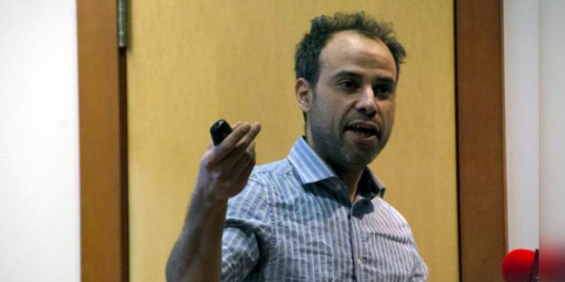Two recent coronavirus studies have suggested that immunity after infection exists and can be robust. Can you explain how ?
A study regarding this possibility is underway (preprint), but it has not been peer-reviewed yet. The other study, on the other hand, was published by peer-reviewed journal Cell. The two studies share the same conclusions. What is important to remember is that all infected people have produced an immune response (production of CD4 + cells) that is capable of triggering a humoral reaction, hence the possibility of producing antibodies against SARS-CoV-2.
What is specific to the cases studied is that this immune reaction has been observed among benign Covid-19 infections. Better yet, it has been found that, in a second group which has not tested positive, there is also a presence of this immune response.
This explains, only on a hypothetical level, the few infections recorded among children. Being often exposed to colds, they have been able to develop immune reactions which continue to protect them from several coronaviruses. This is called «cross-immunity». The same thing applies to asymptomatic cases.
This discovery shows that it is not necessary to have a significant infection rate within the population to achieve the so-often-called herd immunity. The heterogeneity of the transmission and the existence of cases of super-spreading also point towards this direction where it would appear that less than 20% of the infected are responsible for 80% of secondary infections.
Betting on herd immunity is however a difficult choice, especially for vulnerable communities. Where are we now ?
Herd immunity remains the ultimate goal. Very few people dare to say it, but that is what will save us in the end, whether it is with or without a vaccine. However, finding a vaccine is a means to achieve herd immunity. The problem with the strategy of letting the virus spread to achieve herd immunity is sacrificing many lives, while at the same time overloading hospitals.
Sweden is a good example of that. They decided not to implement a mandatory lockdown and bet on herd immunity. The result was that mobility in Sweden has declined in the same way as in other countries.
In a country like Morocco, implementing the same strategy of herd immunity would have dire economic and sanitary consequences.
 President Donald Trump and Moncef Slaoui. / Ph. Drew Angerer -AFP
President Donald Trump and Moncef Slaoui. / Ph. Drew Angerer -AFP
There have been announcements of promising vaccine discoveries. Can we hope for a vaccine by the end of the year, as Moncef Slaoui announced to Donald Trump ?
There are indeed a hundreds of vaccines that are being studied currently, including 6 or 7 which are in the advanced stage of clinical trial.
Historically, developing a vaccine has taken an enormous amount of time. We can find a promising vaccine, but clinical trials can last from 4 to 7 years.
In general, a vaccine is the modified virus from which its infectious part is removed, but for Moderna, which has just made a very optimistic announcement, the vaccine uses a strand of RNA.
The biggest challenge will be the logistical capacity to mass produce. Countries that do not have this technology will not be able to produce the vaccine, as it is hard to adapt the conventional vaccine industry.
How do you assess the epidemiological situation in Morocco ?
To assess the epidemiological situation, it is necessary to have access to detailed data. We talk about R0 (propagation rate), Rt but these are only average rates which are difficult to interpret without the context.
There is a tendency to trust a single indicator, but this is a mistake. Once the objective is an indicator, for example the R0, it is no longer a good indicator, because it can be manipulated in different ways.
From my point of view, we need several indicators: the Rt by calculating it in different ways to see if the different results converge; the rate of positive tests on the total number of tests carried out or positivity rate which must be greater than 50 for example. These different indicators are rather reassuring for Morocco. But ultimately, the deconfinement question is not about when but how.
What would be the best practice for deconfining ? Is there a range of effective measures like mass testing, tracing via smartphone, and so on...?
If we could do mass testing, we can end the lockdown quickly. The concern is that Morocco simply does not have enough capacity, because we do not have national production. This is also food for thought: why do we not have such an industry when it is not particularly complicated?
But given the current context, we have to adapt by doing something else. So the tracing app is useful but it requires a high adoption rate, managing false positives, and having the rapid intervention capacities for the management of suspected cases. There is also virus surveillance in wastewater, and making sure that the the sentinel network to monitor influenza-like illness is properly used.

Has hydroxychloroquine + azithromycin played a role in treating severe cases ?
There is no proven causal link. It is a disease that will kill an average of 1%, probably less in Morocco since the average age of the infected is less than 40 years. So to put it in other words, out of 100 infected people, 99 will recover. 85 of them will heal just by drinking water because they will have no complications.
All serious studies to date have not proven the effectiveness of this treatment. It could even have serious side effects. Antivirals are not really the miracle treatment. Neither hydroxychloroquine nor Remdesevir is the solution.





 chargement...
chargement...













